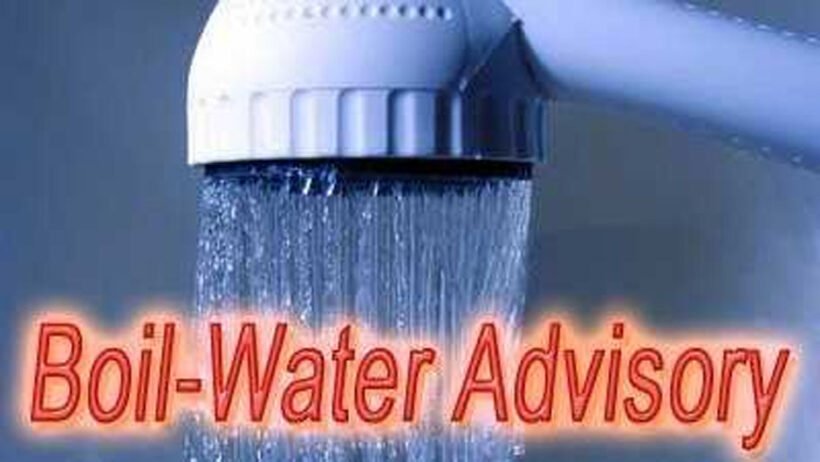Understanding Boil Water Advisories in Harrisburg
Boil water advisories are more than just official notices; they are crucial public health alerts designed to protect residents from potential contaminants in their drinking water. For those living in Harrisburg, Pennsylvania, these advisories, though not a daily occurrence, demand immediate attention and a clear understanding of the necessary precautions. Knowing why these alerts are issued and how to respond properly is fundamental to safeguarding the health and well-being of every household.
These advisories are never issued without good reason. They typically follow events that could compromise the integrity of the water supply, such as significant water main breaks, unexpected drops in water pressure, or the detection of harmful bacteria. When Capital Region Water, the local water authority, issues such a notice, it’s a clear signal that residents must take proactive steps before consuming tap water.
Why These Advisories Become Necessary
Boil water advisories are primarily put in place when there’s a legitimate concern that the public water supply might be contaminated with harmful bacteria or other microscopic organisms. This contamination often arises from disruptions within the complex water distribution system.
A frequent culprit is a water main break, which can cause a sudden loss of positive water pressure. When this pressure drops, there’s an increased risk of external substances, like contaminated groundwater, being drawn back into the pipes through back-siphonage or back-flow. It’s not uncommon for construction activities to inadvertently damage pipes, triggering these critical events.
Other factors, such as equipment malfunctions at water treatment plants or even severe weather events like floods, can also overwhelm water systems. In these situations, the water authority acts swiftly, issuing an advisory as a vital precautionary measure. This ensures residents avoid potentially unsafe water while comprehensive testing and necessary repairs are carried out.
Harrisburg Neighborhoods: Recent Incidents and Affected Areas
Harrisburg, like many cities with established infrastructure, has experienced its share of boil water advisories. Recent incidents have generally been localized, impacting specific streets or blocks rather than the entire city. For example, in June 2025, certain addresses along Carlisle Street, Holly Street, and Derry Street were placed under an advisory following a significant water main break.
These advisories are precise, clearly listing the exact street numbers and names of the affected properties to guide residents effectively. Such incidents often underscore how vulnerable water systems can be to external factors, particularly construction work that accidentally damages underground pipes, leading to sudden pressure loss and the need for immediate public safety measures.
Despite the disruption, Capital Region Water is committed to transparent communication, clearly identifying affected areas and outlining necessary precautions. Residents in these specific Harrisburg neighborhoods typically receive direct notifications through local news channels and the water authority’s official platforms, ensuring they are well-informed during these crucial times.
Your Action Plan: Essential Steps During an Advisory
When a boil water advisory is active, the most important instruction is straightforward: do not consume tap water without boiling it first. This simple yet highly effective step eliminates most harmful bacteria and viruses that could be present in the water supply. The process is easy to follow and can be quickly incorporated into your daily routine.
To properly boil water, simply fill a clean pot with tap water and bring it to a vigorous rolling boil. It’s crucial to maintain this strong boil for at least one full minute to ensure all potential pathogens are destroyed. After boiling, allow the water to cool naturally before using it.
Once cooled, transfer the boiled water into a clean, sanitized container with a lid for safe storage. This prevents any re-contamination. These steps are absolutely vital for any water intended for drinking, cooking, or direct contact with your body.
Safe Water Usage: Beyond Just Drinking
While drinking water is the immediate concern during a boil water advisory, it’s equally important to consider all other ways water is used that could lead to ingestion or contact with contaminants. The advisory’s guidelines extend to nearly all activities where tap water might be consumed or come into contact with sensitive areas of the body.
This includes making ice, which should only be prepared with water that has been boiled and cooled, or with bottled water. Washing dishes also demands extra care; either use boiled water for rinsing or consider using disposable plates and utensils during the advisory period. Brushing your teeth is another activity where using boiled or bottled water is essential to avoid accidentally ingesting untreated water.
Furthermore, any food preparation involving water, such as washing fruits and vegetables or cooking, must utilize boiled or bottled water. Even your beloved pets should be given boiled and cooled water. Adopting these comprehensive precautions ensures the highest level of safety for everyone in your household throughout the advisory.
When Can You Stop Boiling? Lifting the Advisory
Boil water advisories are always temporary measures, and Capital Region Water works tirelessly to resolve the underlying issues and restore safe water service as quickly as possible. The advisory remains in effect until rigorous testing conclusively confirms that the water supply meets all Environmental Protection Agency (EPA) requirements for public drinking water.
Once a water main break is repaired or the source of contamination is addressed, the water system undergoes thorough flushing. Multiple water samples are then collected from various points within the affected area. These samples are promptly sent to certified laboratories for detailed bacterial analysis. This critical testing process typically requires at least 24 to 48 hours to produce reliable results.
Only after two consecutive sets of samples show absolutely no signs of contamination will Capital Region Water officially lift the boil water advisory. Residents will be informed through the same communication channels used to issue the initial advisory, ensuring everyone knows precisely when it is safe to resume normal tap water usage without the need for boiling.
Capital Region Water: Your Go-To for Information
Capital Region Water stands as the primary authority and central information hub for Harrisburg residents concerning water quality and advisories. During any boil water advisory, their official website and various communication channels become indispensable resources for obtaining the most current and accurate information.
Residents are strongly encouraged to regularly check the Capital Region Water website for important announcements, frequently asked questions (FAQs), and precise details about affected areas. They also effectively leverage local news outlets, social media platforms, and direct notifications to ensure critical information reaches a wide audience. Their dedicated customer service center is also readily available to address direct inquiries.
Staying connected with Capital Region Water’s official communications is the most dependable way to receive timely updates on advisories, including when they are first issued and, crucially, when they are lifted. This proactive engagement empowers residents to remain well-informed and fully prepared for any water-related events that may arise.
Conclusion: Staying Informed and Prepared is Key
Boil water advisories, while they can be inconvenient, are vital tools for protecting public health across Harrisburg neighborhoods. They serve as a powerful reminder of the intricate infrastructure that delivers clean water to our homes and the constant vigilance required to maintain its safety. By understanding the reasons behind these advisories, knowing the correct steps to take, and staying informed through official channels, residents can effectively protect themselves and their loved ones.
Preparedness truly is paramount. Keeping a small emergency supply of bottled water on hand and being familiar with the proper boiling procedure can make a significant difference during an advisory. Ultimately, the combined efforts of Capital Region Water and its informed residents ensure that Harrisburg continues to enjoy access to safe and reliable drinking water, even when faced with unexpected challenges.








